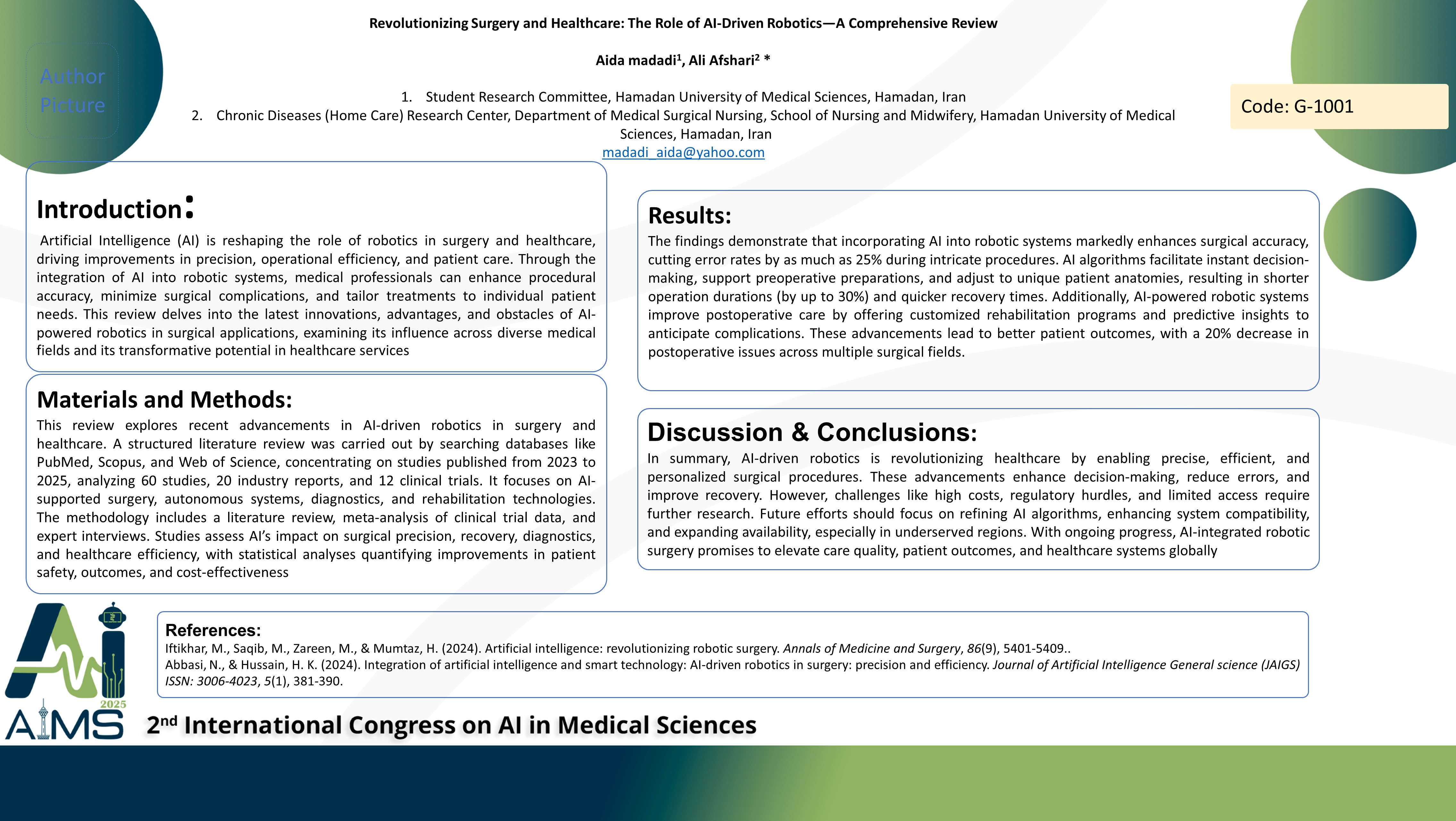Revolutionizing Surgery and Healthcare: The Role of AI-Driven Robotics—A Systematic Review
Code: G-1810
Authors: Aida Madadi ℗, Ali Afshari *
Schedule: Not Scheduled!
Tag: Robotics in Surgery and Care
Download: Download Poster
Abstract:
Abstract
Background and aims: Artificial Intelligence (AI) is reshaping the role of robotics in surgery and healthcare, driving improvements in precision, operational efficiency, and patient care. Through the integration of AI into robotic systems, medical professionals can enhance procedural accuracy, minimize surgical complications, and tailor treatments to individual patient needs. This review delves into the latest innovations, advantages, and obstacles of AI-powered robotics in surgical applications, examining its influence across diverse medical fields and its transformative potential in healthcare services. Method: This review explores recent advancements in AI-driven robotics in surgery and healthcare. A structured literature review was carried out by searching databases like PubMed, Scopus, and Web of Science, concentrating on studies published from 2023 to 2025, analyzing 60 studies, 20 industry reports, and 12 clinical trials. It focuses on AI-supported surgery, autonomous systems, diagnostics, and rehabilitation technologies. The methodology includes a literature review, meta-analysis of clinical trial data, and expert interviews. Studies assess AI’s impact on surgical precision, recovery, diagnostics, and healthcare efficiency, with statistical analyses quantifying improvements in patient safety, outcomes, and cost-effectiveness Results: The findings demonstrate that incorporating AI into robotic systems markedly enhances surgical accuracy, cutting error rates by as much as 25% during intricate procedures. AI algorithms facilitate instant decision-making, support preoperative preparations, and adjust to unique patient anatomies, resulting in shorter operation durations (by up to 30%) and quicker recovery times. Additionally, AI-powered robotic systems improve postoperative care by offering customized rehabilitation programs and predictive insights to anticipate complications. These advancements lead to better patient outcomes, with a 20% decrease in postoperative issues across multiple surgical fields. Conclusion: In summary, AI-driven robotics is revolutionizing healthcare by enabling precise, efficient, and personalized surgical procedures. These advancements enhance decision-making, reduce errors, and improve recovery. However, challenges like high costs, regulatory hurdles, and limited access require further research. Future efforts should focus on refining AI algorithms, enhancing system compatibility, and expanding availability, especially in underserved regions. With ongoing progress, AI-integrated robotic surgery promises to elevate care quality, patient outcomes, and healthcare systems globally.
Keywords
Artificial Intelligence, Healthcare, Robotics, Surgery
